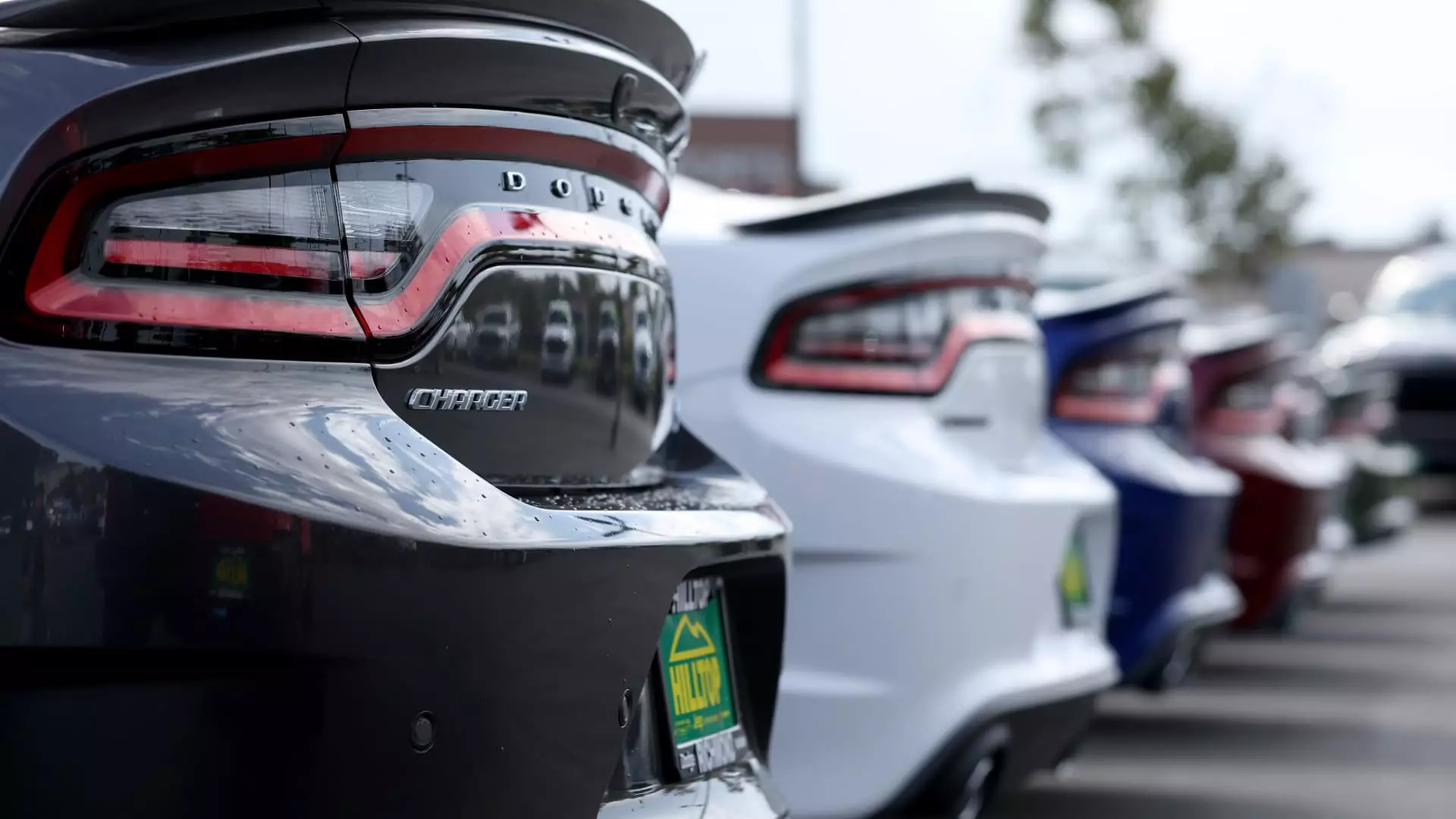The European automotive market is facing critical challenges, as multiple major car manufacturers struggle with declining profitability and increased competition, especially from China. The recent profit warnings issued by Stellantis and Aston Martin are emblematic of wider issues lurking beneath the surface of an industry grappling with change. This article will delve into the specific concerns highlighted by these carmakers, the broader repercussions on the European automotive landscape, and the ongoing impact of global economic shifts.
The financial health of Stellantis and Aston Martin has come under scrutiny in light of significant profit warnings. Stellantis, a conglomerate boasting a diverse portfolio that includes notable brands like Jeep and Maserati, has revised its 2024 profit guidance downward. This adjustment stems from what the company characterizes as deteriorating “global industry dynamics” and aggressive competition emanating from Chinese manufacturers. The company expressed concerns about a decline in sales across most regions in the latter half of the year, revising its forecast for adjusted operating income to between 5.5% and 7.0%, a striking contrast to its earlier predictions of a “double digit” performance. This indicates not just a temporary hiccup but a fundamental shift in Stellantis’s market dynamics.
Aston Martin’s situation reflects a similar plight, with the luxury brand announcing a reduction in both its profit margin and production targets. The vaunted British carmaker, often associated with the James Bond franchise, has attributed its recalibrations to supply chain disruptions and waning consumer demand influenced by macroeconomic instability in key markets like China. The company anticipates a significant reduction in output—approximately 1,000 fewer units—underscoring the necessity for immediate remedial action. The warning that Aston Martin would not achieve positive cash flow in the latter half of the year adds further weight to the seriousness of the situation.
It is not just the individual brands suffering but the entire landscape of European car manufacturing is beginning to feel the pinch. As highlighted by both Stellantis and Aston Martin, the confluence of rising operational costs, intense competitive pressure from Chinese automakers, and a general economic slowdown are proving detrimental. Recent reports indicate that Volkswagen has similarly revised its annual outlook, citing a decrease in profitability due to sluggish performance across both passenger and commercial vehicle segments. With the German carmaker now expecting an operating return on sales of just 5.6%, the narrative is becoming increasingly dire.
The struggle to maintain market share in China is particularly telling. Once a rich ground for expansion, Chinese automakers are actively pushing for a foothold in Europe and ramping up their electric vehicle (EV) sales. As the shift towards EVs gathers momentum, traditional European carmakers find themselves grappling with an insatiable demand for innovation amid slumped sales. Analysts from ING point out that consumer appetite for new automobiles has not rebounded to pre-pandemic levels, further compounding the challenges for these manufacturers.
Response Strategies in the Face of Adversity
In light of these grim prospects, how are European carmakers responding? Stellantis’s decision to enhance its remediation efforts in North America signals an urgent acknowledgment of the need to address underlying performance issues, although detailed plans remain undisclosed. Despite the unfavorable news, Stellantis asserts that the Chinese market presents a significant opportunity, contingent on stabilizing the macroeconomic environment.
Similarly, Aston Martin is keen to address its supply chain complications while still eyeing the burgeoning Chinese market as a future opportunity. This dual approach indicates a growing realization among European carmakers to adapt and pivot in their strategies while confronting the immediate challenges ahead.
The present challenges facing Stellantis, Aston Martin, and their peers are indicative of a larger existential crisis within the European automotive sector. Profit warnings and stock plunges are not mere anomalies; they reflect deeper shifts within the automotive landscape and a market ripe for transformation. While the path to recovery appears arduous, a renewed focus on innovation, supply chain resilience, and market adaptability will be paramount for European automakers to reclaim their positions and tackle what promises to be a relentless and competitive future.

